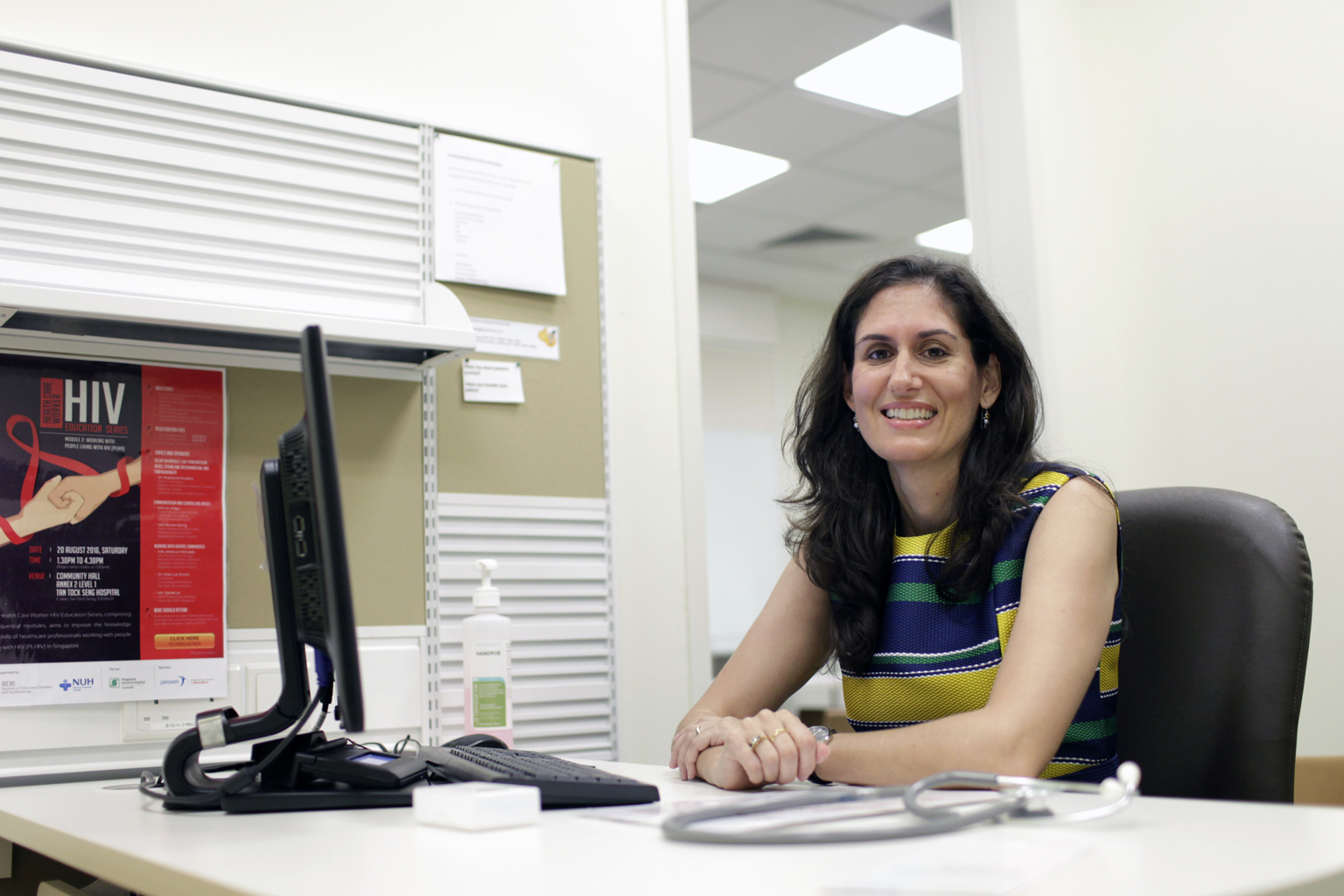The Pro
'Disease detective' who helps prevent outbreaks
Tracking down a possible infectious exposure is intellectually challenging for Dr Sophia Archuleta
Sign up now: Get ST's newsletters delivered to your inbox

Dr Sophia Archuleta
PHOTO: GIN TAY FOR THE STRAITS TIMES
Joan Chew
Follow topic:
Q I specialise in treating infectious diseases because...
A I get to be a "complete" doctor as I need to be an expert in almost every aspect of medicine. Infections occur across all ages and medical disciplines.
To help a patient or track down a possible infectious exposure, I may need to know what the patient has eaten, where he has travelled to, what pets he has and what his hobbies are.
This is intellectually challenging but very rewarding.
Although infections can strike quickly, most are, in fact, curable or, at least, controllable.
Q The "infectious disease triangle" is fascinating because...
A This refers to the interactions between the host (the patient and his immune system), a pathogen (the infectious agent) and the environment.
These factors come together in ways that are unique to each patient and they determine whether he stays healthy or becomes very unwell as a result of the infection.
This means we have to take these factors into account when we plan the individualised treatment for the patient. One size does not fit all.
Q If I were to give an analogy for what I do, I would...
A Be a disease detective. I would apply my diagnostic skills to indi- vidual patients - asking questions such as what their symptoms are and where the infectious exposure occurred - while my colleagues would be investigating the infectious disease outbreak.
We are like detectives at the scene of a crime, collecting clues until a pattern reveals itself.
We will then use that information to stop and prevent outbreaks.
-
Bio Box
DR SOPHIA ARCHULETA
AGE: 43
OCCUPATION: Senior consultant at the division of infectious diseases at National University Hospital (NUH).
As head of the HIV programme at NUH and a clinician educator, Dr Archuleta has seen great progress being made in the field of human immunodeficiency virus (HIV) care over the years.
That is why it pains her when she hears of HIV myths surfacing every so often.
HIV is the virus that causes acquired immunodeficiency syndrome or Aids.
Dr Archuleta knows of healthcare workers who are hesitant to work with people living with HIV.
It is "not acceptable for our personal fears or beliefs to get in the way of our professional duty of care to all patients", she said.
But she is glad that increased awareness through educational initiatives has made the community less fearful of people living with HIV.
For example, World Aids Day - a worldwide public awareness campaign that is held on Dec 1 every year - has helped to clear up some misconceptions about HIV, she said.
Dr Archuleta, who hails from the United States, also serves as programme director of the National University Health System (NUHS) Infectious Diseases Senior Residency Programme.
She is the organising committee chair of the upcoming four-day Asia-Pacific HIV Practice Course to be held at NUH. It trains healthcare workers on how to care for people living with HIV.
Joan Chew
Q A typical day for me...
A Always begins with coffee. I am not sure if I will ever have a typical day as I wear multiple hats throughout the day. I could be seeing patients, replying e-mails, teaching or working on one of our research trials.
My research includes looking at the benefits of HIV screening and how an early diagnosis of HIV can improve access to care and lead to better patient outcomes.
Q One little known fact about HIV is...
A HIV cannot be transmitted through kissing and hugging, or the sharing of toilets, utensils and cups.
Q I have come across patients from...
A All walks of life, though I work mainly with people living with HIV. This is a virus that does not discriminate - it can infect men, women or children.
Many people still discriminate against those who have HIV. This is usually due to poor HIV-related knowledge or negative beliefs.
Q I love patients who are...
A Engaged in their care. These patients work with me and my team to optimise their health, which includes taking their medication daily.
HIV treatment, also known as anti-retroviral therapy, can prevent the HIV virus from multiplying in a person's body.
The fewer viruses there are in the body, the better its immune system can fight infections.
Q Patients who get my goat...
A Are those who are late for their appointments. It will make my job easier if everyone is on time.
Q It breaks my heart when...
A My patients face discrimination just because they have HIV. This can have a significant impact on their well-being and mental health.
People with HIV do not deserve to be treated differently or unfairly because of their HIV status. It is already hard enough to live with a chronic medical condition.
Q My best tip to caregivers of HIV patients is...
A Always look after yourself and your loved ones.
Caring for anyone, regardless of his illness, can be challenging.
Self-care and taking time out is important for both you and your loved ones. Your healthcare team is here to support you both.

